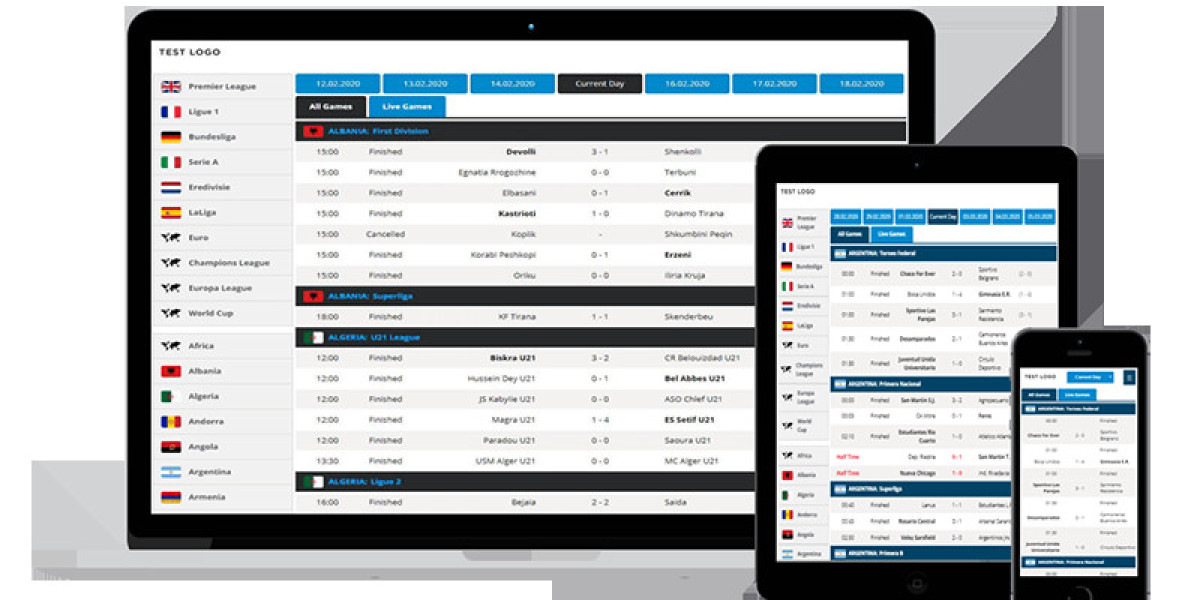Sports APIs are effective for sourcing relevant data, such as the event stream, which can provide real-time feed, historical scores, team and player statistics, and much more, as well as event schedules. Whether you are developing an app for sports, tracking players' performance, or even tracking/updating live scores, selecting the proper sports API is crucial. When in 2024, developers will make their choices depending on the quality of the APIs that offer such information as well as fixations that are highly reliable and easily interface.
1. Real-Time Data Access
Importance of Real-Time Data
Sporting events are cantering applications where real-time data is highly useful, such as real-time score updates, play-by-play commentary, and statistic updates on the sports event relayed on the media. Audiences and users want instant information in games or matches, including scores, commentaries, and other related news. Live data APIs allow your application to deliver real-time status on goals, touchdowns, penalties, and more in a game.
Key Features
Live Score Feeds: If your app requires updates to live game scores, you need APIs that ensure the application is updated to these results. This is useful for applications that deal with betting, fantasy sports, or giving the user current information.
In-Game Statistics: Information such as player statistics, team performance, and statistical analysis during games provides users with elements that go beyond the simple score in a game.
Push Notifications: Some APIs also allow the broadcasting of alert events, such as goals, fouls, substitutions, or end-of-match scores.
2. Historical Sports Data
Why Historical Data Matters
Top Sports Scores APIs play a vital role in sports analytics, fantasy sports, and sports journalism. A large number of games, players’ and teams’ records, and statistics help to make valuable conclusions and forecasts. Additional important uses of historical data include creating content like recaps, player comparisons, and performance trends.
Key Features
Comprehensive Database: It is necessary to find APIs that offer not only a plethora of statistical data but also information concerning many seasons, leagues, and tournaments. This should involve self-explanatory player statistics, game results, and team performance characteristics.
Detailed Player Profiles: APIs that offer detailed player profiles, including stats, injury history, and transfers, can significantly enrich the user experience for fans and analysts.
Statistical Trends and Records: APIs offering detailed analytics on trends (e.g., scoring patterns, win-loss streaks) or breaking down records (e.g., fastest goals, longest winning streaks) allow for more engaging content.
Advanced Filtering: The ability to filter historical data by parameters like date range, team, or player allows developers to pull precise insights.
3. Multiple Sports and League Coverage
Broad Sports Coverage
An API that covers multiple sports and leagues is essential if your project targets a broad audience. With sports fans following various events, from significant leagues to niche competitions, having an API supporting a broad range of interests will help meet user demands.
Key Features
Multisport Support: The best APIs will provide data across different sports, such as soccer, basketball, football, cricket, tennis, and more. This ensures you can expand your offerings without integrating new APIs for each sport.
International Leagues: Popular leagues in sports like soccer, basketball, and cricket often have global followings. Ensure the API covers international tournaments and leagues in various regions, including mainstream and lesser-known competitions.
Seasonal Competitions: Besides regular-season games, look for APIs that offer data for seasonal competitions like World Cups, European Championships, or Olympic events.
Esports Coverage: In 2024, the growing popularity of esports cannot be ignored. Some APIs provide data for major esports leagues, making it possible to cater to fans of competitive video gaming.
4. Player and Team Information
Detailed Player and Team Data
While live Football Data focuses on player comparisons, fantasy leagues, or betting, comprehensive player and team data is essential. This includes player profiles, team rosters, and in-depth performance, injuries, and transfer statistics.
Key Features
Player Statistics: Comprehensive player statistics beyond simple metrics like goals or points scored. Look for APIs that include advanced statistics such as passing accuracy, shooting efficiency, or defensive actions.
Injury Reports: Up-to-date reports are crucial for fantasy sports and sports betting apps. An API that provides real-time updates on player injuries, recovery timelines, and their impact on games is invaluable.
Transfers and Trades: APIs offering data on player transfers, trades, and contract statuses are essential for applications tracking player movements.
Team Rosters: Complete team rosters, including up-to-date information on starting lineups, substitutes, and coaching staff, enabling accurate match previews and analysis.
5. Flexibility and Customization
Importance of Customization
Not all sports apps are the same, and the flexibility of a sports API can be a critical factor. Developers often need to tailor the API's output to their specific needs, whether focusing on a particular sport, customizing data visualizations, or filtering information for specific user demographics.
Key Features
Customizable Data Feeds: APIs that allow developers to customize data feeds, focusing on specific leagues, events, or metrics, offer greater flexibility in designing user experiences.
Data Filters: Look for APIs with advanced filtering capabilities. For example, the ability to filter by date, location, player, or team allows developers to fine-tune the data presented to users.
Webhook Support: Webhooks allow your app to automatically receive updates without constantly requesting data from the API. This can be useful for instant updates on live scores, injury reports, or transfer news.
6. API Reliability and Scalability
Importance of Performance
The reliability and performance of the API are paramount when building a sports app, especially one that handles real-time data. Sports fans expect a smooth, uninterrupted experience, particularly during live games or events.
Key Features
High Uptime: Choose APIs with a track record of high uptime, ensuring that your app can access data at all times, even during peak demand, such as during major sporting events.
Low Latency: For live data, low-latency APIs are crucial to ensure that scores, statistics, and updates are reflected in your app in real time without delays.
Scalability: For apps with large or growing user bases, ensure the API can scale to handle increased traffic without a drop in performance. Scalability is significant during major events like tournaments, where user engagement spikes.
7. Documentation and Developer Support
Why Documentation Matters
Well-written documentation and robust support can significantly improve the ease of integrating and using an API. This is especially important for complex projects requiring extensive customization.
Key Features
Clear Documentation: Look for APIs with clear, detailed documentation that includes code examples, implementation guides, and explanations for each endpoint. This makes it easier to integrate the API into your project.
Active Developer Community: Some APIs offer forums or communities where developers can share tips, report issues, and get support. This can be a valuable resource when working on challenging aspects of integration.
Dedicated Support: APIs that offer dedicated developer support, including quick response times and troubleshooting assistance, help reduce downtime and frustration during development.
Comprehensive Best Sports APIs to Use in 2024 support ensures that even complex integrations run smoothly, allowing you to focus on building a great sports app rather than debugging API issues.








